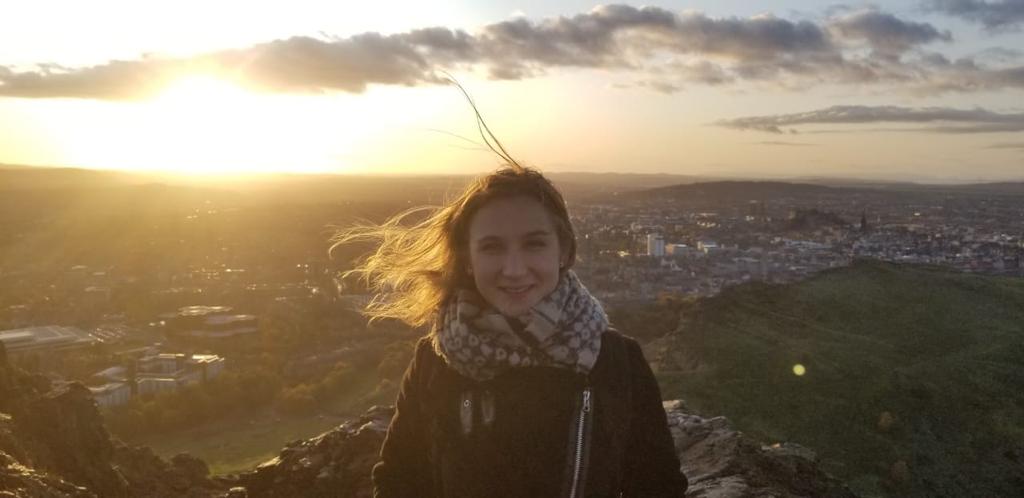Get to know the early stage researchers – interview with Carina Mueller – new ESR in the project

The Edulia consortium is happy to present a new ESR in the network. Carina Mueller has recently started as a junior researcher in Wageningen, below you can read about her.
What is your background?
My name is Carina, I am 26 years old and from Cologne, Germany.
I studied Sports Science in my undergraduate studies at the German Sport University of Cologne and continued with a certificate course in personal training, including nutrition. I did my master in Behavioural Science in Stirling, Scotland.
Between my bachelor’s and master’s degree, I worked in Occupational Health Management in which I created concepts on how to maintain employees’ health. I developed programs for healthier eating and physical activity.
During my masters, I applied Behavioural Science concepts to different health areas, like nutrition and sugar consumption. In my master’s thesis I studied barriers towards tissue donation and the influence of a myth-busting intervention on donation intentions. I always tried to connect everything I do to the area of health, especially to nutrition and physical activity as I love learning and reading about these fields.
Why did you want to be part of Edulia?
I wanted to become part of Edulia as I am passionate about health and nutrition. Being part of Edulia allows me to work in this exciting area. I always tried to understand what hinders people to eat healthier, especially as we know the impact of nutrition on health, it seems irrational to eat unhealthily. Thus, I am very excited to further research barriers towards healthier eating in children.
Which institution are you going to work in?
I am working at the Wageningen University and Research in the Netherlands.
What are your expectations of living in the Netherlands?
As I am from Germany, I have been to the Netherlands quite often. I always enjoy being there as the people are very friendly and welcoming. I am looking forward to learning more about the culture, to biking everywhere and to learning the language.
When did you start your position?
I started working as a junior researcher on the first of October 2020.
What do you think will be the main challenge for you the next years?
I think the main challenge for the next time will be to adapt the project in a way that we can continue with it during the Corona pandemic. In combination with that, it might be a little bit harder to get to know colleagues and the team. Another challenge might be conducting surveys and projects in a new language. However, I am looking forward to growing with these challenges.
What do you think about your future career?
For now, I want to focus on my current position as a junior researcher. However, I plan to continue with a PhD and to work in academia to combine conducting health research and teaching students. I hope to be able to link the exciting areas of nutrition and health with behavioural science.
Which challenges do you find most important for our society in the future?
The challenges I find most important for our society in the future are sustainability and people’s health. Especially as many European countries face an ageing society, it is important to maintain good health and to live as long as possible without chronic diseases. However, especially through individuals’ lifestyles, non-communicable diseases like Diabetes become more and more common in our society. Thus, one of the most important challenges will be to help people maintain good health and to support them making good health and lifestyle decisions.
How do you want to make a difference?
I want to make a difference through projects which focus on delivering insights about barriers towards healthy eating. Through these, I want to understand what hinders people from eating healthy and based on that, help to find solutions to reduce barriers. As eating habits established in early childhood influence later eating behaviour, I especially want to research the influence of parents’ behaviour on children’s eating habits to find ways on how to support parents to establish healthier eating in children.
Your project is focused on toddlers. What do you think will be the worst/best part of doing research related to this age-group?
I think the most challenging aspect of doing research with toddlers will be working with parents. The best part will be that it is going to be fun working with this age-group as it could be harder to predict how they will react and behave in certain situations.
Children, ESR5, interview, motivation, toddlers


